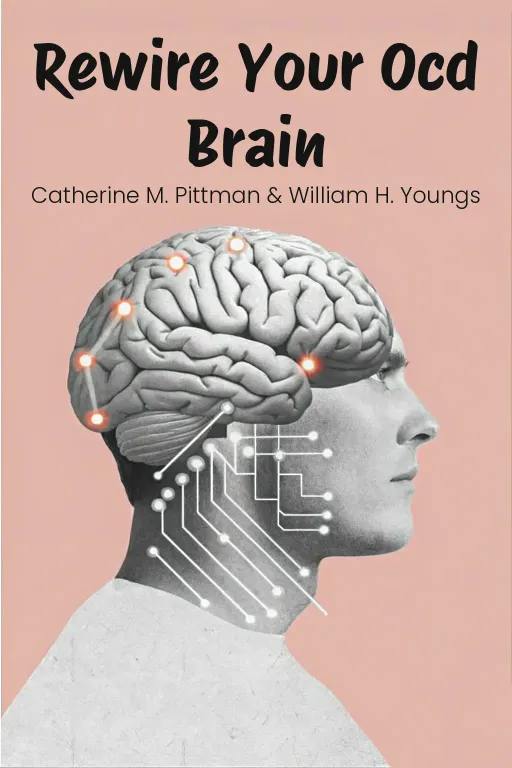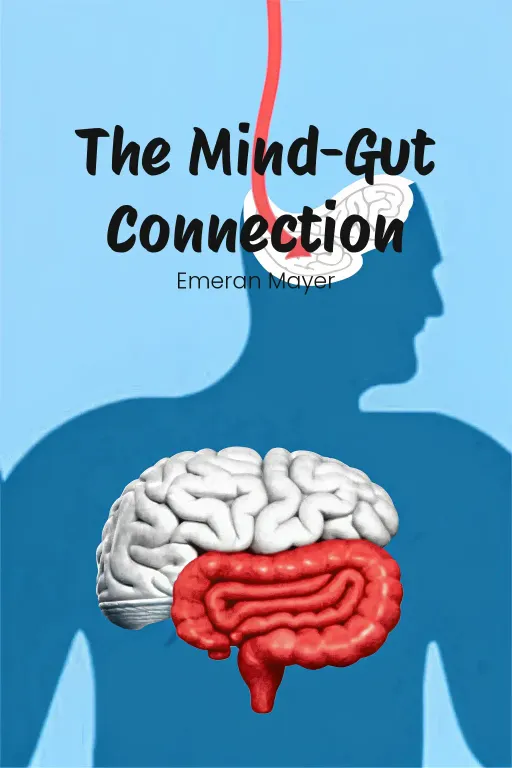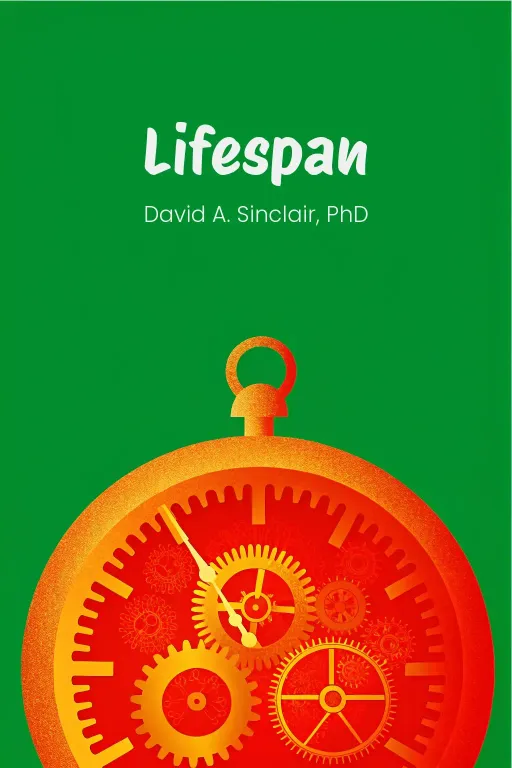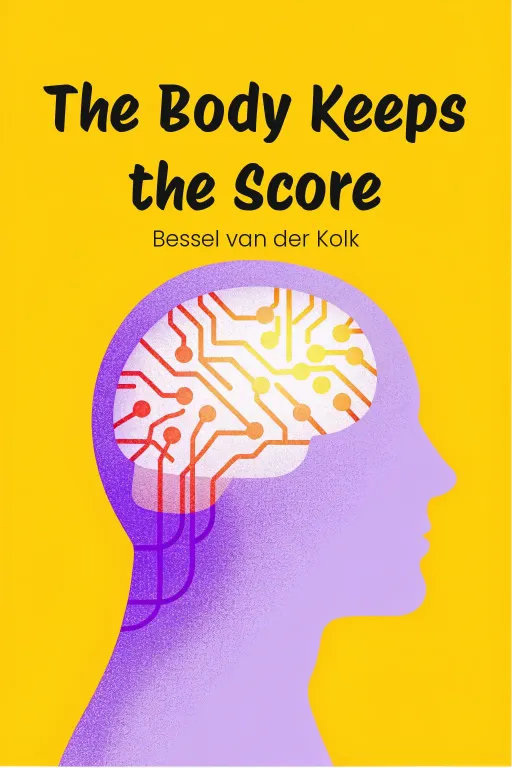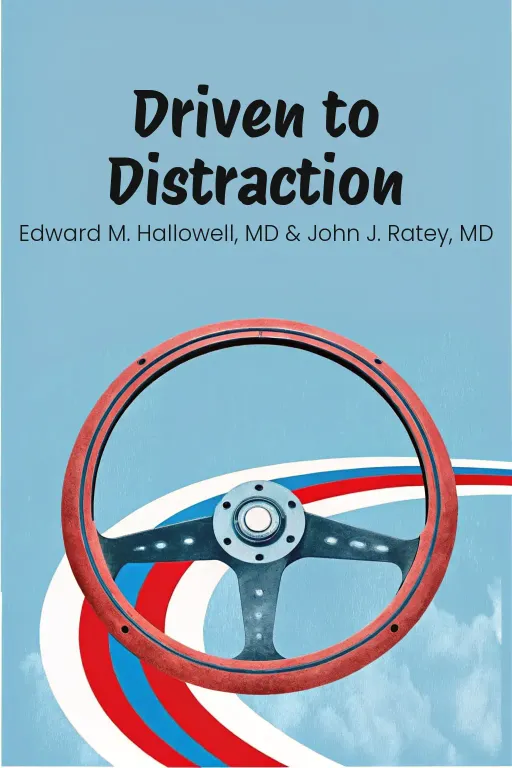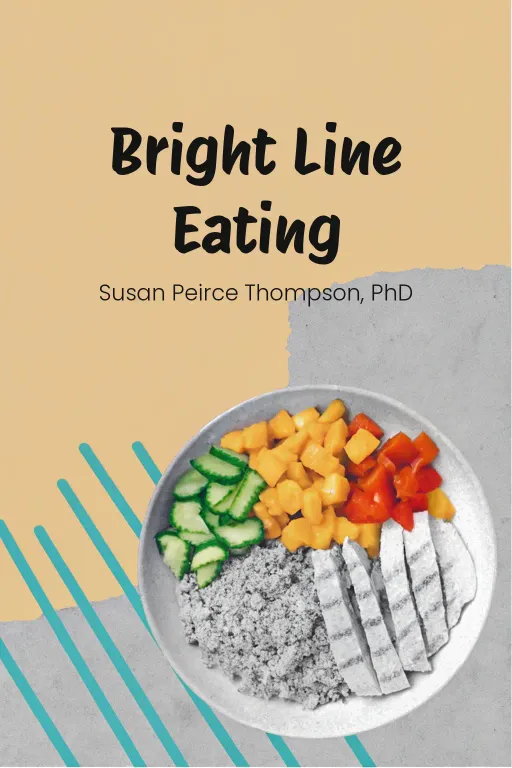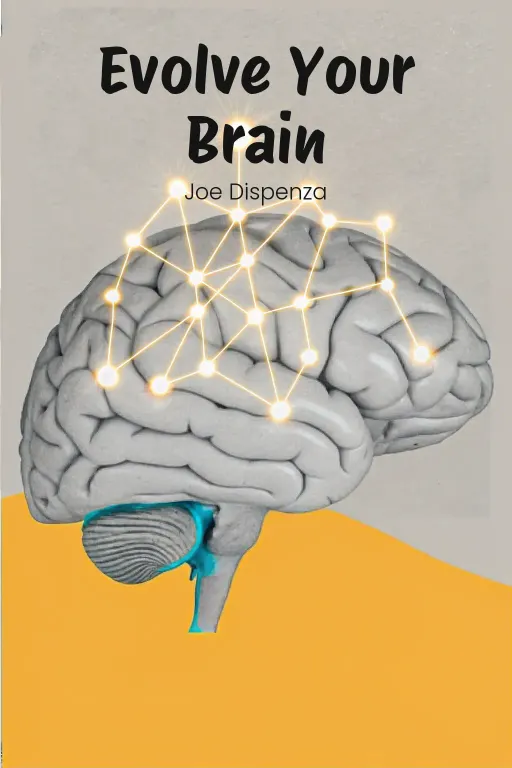
Age Later: Decode Your Body's Clock
Podcast by Beta You with Alex and Michelle
Why We Age — and Why We Don't Have to
Age Later: Decode Your Body's Clock
Part 1
Alex: Hey everyone, welcome to the show! Today, we’re tackling a question that’s probably crossed everyone’s mind: why do we age? Is it just inevitable, written into our DNA, or is there something more to it? Could we actually influence, maybe even reverse, the aging process? Michelle: Yeah, and before you roll your eyes and think this is pure fantasy, hear us out. There’s a rapidly expanding field of research that’s really challenging our fundamental understanding of aging. But, you know, messing with something as basic as time itself… what could possibly go wrong? Alex: Exactly! That's where David Sinclair’s book, “Lifespan: Why We Age—and Why We Don’t Have To”, comes in. Sinclair’s core argument is that aging isn't just a natural part of life; it's actually a disease, and like any disease, potentially treatable. He dives deep into the genetics and epigenetics of aging, explores the latest research on extending our healthspan, and paints a picture of a future where people could live much longer, healthier lives. But it's not just about the science, is it? It's also about the huge societal and ethical considerations that come with fundamentally changing how we grow old. Michelle: Right. So today, we're diving into three key takeaways from Sinclair’s work. First, we’ll break down the science – what actually causes our bodies to age? Hint: it's all about how our cells handle stress. Next, we'll look at the cutting-edge interventions – the new technologies, drugs, and lifestyle changes that are supposedly slowing down or even reversing aging at the cellular level. Finally, we'll consider the societal implications. I mean, if people start living to 120 or older, what does that mean for things like healthcare, retirement, and, well, everything else? Pretty big stuff. Alex: Huge! We’re talking about zooming in to the tiniest molecular processes in our cells, then zooming way out to consider some pretty profound philosophical questions about life, death, and the future of humanity. Honestly, there's so much to explore, so let’s jump right in.
The Science of Aging
Part 2
Alex: Okay, let's dive right in – the biology of aging. A core concept from Sinclair is genomic instability. Basically, over time, our DNA accumulates damage, whether from environmental factors like radiation or just the wear and tear of normal cellular activity. Think of our cells as libraries and DNA as the encyclopedias. With time, pages get damaged, smudged, and it becomes harder to find the information you need. Michelle: Right, it's not just messy bookshelves though, is it? Unresolved damage leads to mutations. Some are harmless typos, but others have serious consequences, like cancer or other diseases. What I found most interesting was the role of sirtuins. They're like the DNA repair crew, right? Alex: Exactly! Sirtuins are the emergency responders that rush to the scene when DNA is damaged. But here's the catch: they depend on NAD+, a molecule our cells use for energy and repair. As we age, NAD+ levels drop, which reduces the effectiveness of sirtuins. It makes sense why older cells struggle to repair themselves as well as younger cells. Michelle: So, NAD+ levels plummet, and the repair crews are underfunded and overwhelmed—errors just accumulate. A bit like a road full of potholes in need of repair. Right, but Sinclair suggests there's hope, doesn’t he? He talks about recharging the system with NAD+ precursors. Am I right in thinking that mice on these supplements had better energy and cellular repair? Alex: You got it! Giving mice NAD+ precursors was like giving their cells a shot of energy. The cells repaired DNA more efficiently and started acting younger. It offers a really encouraging view of possibly restoring the molecular foundations of youth in humans. Michelle: Restoring youth is exciting, no doubt, but some people might think “snake oil!” Does flooding the body with NAD+ have unintended consequences? Like, does it supercharge the wrong cells, possibly precancerous ones? Alex: That’s a valid concern, and researchers are actively investigating it. It's a balancing act—enhancing repair mechanisms without promoting uncontrolled cell growth, which is essentially cancer. But let's shift to another area Sinclair focuses on – telomere attrition. It’s a clear example of our biology running out of time. Michelle: Telomeres – aren't those the "caps" at the ends of chromosomes? Like the plastic tips on shoelaces, expect it's your DNA? Alex: Exactly! Telomeres protect our chromosomes from damage. But each time a cell divides, these caps shorten. Eventually, they reach a critical point where the cell can't divide anymore and enters senescence, a zombie-like state. These senescent cells accumulate, releasing inflammatory signals that disrupt healthy tissue. Michelle: And some cells – stem cells and germ cells, for instance – have a secret weapon called telomerase. It's like a molecular "re-tipping" kit that rebuilds the caps. Sinclair talks about this enzyme a lot, particularly regarding potential therapies. Alex: Definitely. Telomerase replenishes telomeres in those cell types. The idea is, if we could safely harness its activity more broadly, we might slow or even reverse aspects of aging. But there’s another catch. Too much telomerase might inadvertently cause cancer. It’s about finding that therapeutic balance. Michelle: That's the challenge indeed. It seems every intervention Sinclair mentions has caveats. Which brings us to my favorite topic – mitochondrial dysfunction. When the “powerhouses of the cell” start acting like old fluorescent bulbs, flickering and leaking energy. What's going on there? Alex: Mitochondrial dysfunction is a big one. Mitochondria generate ATP, the cell's energy currency. But as we age, they become less efficient and produce more reactive oxygen species, or ROS, which are harmful byproducts. ROS damage the mitochondria and surrounding cell components, creating more decline. Michelle: And this is where those sirtuins reappear, right? As multitasking heroes, they also help mitochondria run more efficiently when activated. Alex: Spot on! Activating sirtuins in aging cells improves mitochondrial function, reducing oxidative stress and restoring energy levels. Sinclair thinks that targeting this loop could slow or prevent cellular energy crises linked to aging. Michelle: So, we’ve got genomic stability, telomere maintenance, and mitochondrial health competing for attention in aging. But we’re not finished—Sinclair’s "Information Theory of Aging" takes this further. Alex: Absolutely. The Information Theory of Aging reframes aging as a software problem. DNA is the hardware – relatively stable. But the epigenome is the software, telling cells which genes to activate and when. As we age, "noise" creeps into this programming, disrupting cell identity and function. Michelle: I love his metaphor – the scratched DVD. The content is still there, but playback is distorted. And his experiments with Yamanaka factors show that the "scratched" epigenome can be restored, right? Didn’t they reverse vision loss in aged mice? Alex: Indeed. By reprogramming damaged retinal cells with Yamanaka factors, Sinclair’s team restored vision. It’s an awesome example of what’s possible by targeting the cellular “software”. It shows that aging, at least partially, can be reversed. Michelle: So, let me check if I have understood this correctly. We can repair DNA damage, extend telomeres, revitalize mitochondria, and reprogram cellular identity altogether? That sounds crazy, but I'm wondering about the elephant in the room: the ethical and practical implications of fiddling around with these processes. Are we even ready for a world where aging isn’t inevitable?
Interventions for Longevity
Part 3
Alex: Right, I think that's the perfect segue. So, now that we've talked about the science of aging, let's dive into the interventions that Sinclair talks about. These aren't just ideas; they're things that are actually being tested right now. Maybe the easiest place to start is with pharmaceuticals, especially for people who are new to all of this. Sinclair mentions some big names, like metformin, rapamycin, and NAD boosters, and the goal with these is to kind of stabilize our systems and fight aging on multiple fronts. Michelle, do any of those stand out to you? Michelle: You know, if I had to pick one, I'd probably go with metformin. I mean, there's something about a $5 diabetes drug potentially being a longevity pill that just seems, well, too good to be true, right? Or maybe too suspicious to be true. But let's dig into it a bit. Metformin, as I understand it, activates AMPK, doesn't it? That enzyme keeps your energy levels balanced and reduces oxidative stress. And then there's, like, that study where diabetic patients actually lived longer than people without diabetes. That's pretty wild. Alex: It is, it really kind of flips the story. You'd think that people managing diabetes would do worse over time, but metformin seems to protect them from other age-related stuff, like heart disease or even some cancers. It optimizes how our bodies use energy. And the cool thing is, it's not some futuristic thing you need a ton of money to get. Michelle: Okay, but here is the question. I can already hear people asking, "Where are the proper human trials specifically looking at longevity?" Because using a drug off-label for something as broad as "aging" is gonna raise a few eyebrows, isn't it? Am I wrong to feel that way, or am I just skeptical? Alex: No, that's a fair point, and actually, there is a study called the TAME trial—Targeting Aging with Metformin—that's looking at exactly that. They're seeing how it affects aging markers in people. But you're right, we do need more data to really see how far the benefits go, especially for, you know, people who aren't diabetic. So, should we move on to rapamycin? Michelle: Ah, yes. Rapamycin, the bacterial treasure of Easter Island. Honestly, if this was a movie, that origin story alone would make it a perfect villain's backstory. But seriously, this compound inhibits mTOR, which is connected to cell growth, right? Alex: Exactly. It slows down the growth mechanisms that can kind of go crazy in aging cells. Young cells need mTOR to grow and repair, but as we get older, having too much of it can cause inflammation and spread senescent cells. So, rapamycin basically pushes cells into a maintenance mode where they focus more on staying healthy longer instead of just growing. Michelle: And wasn’t there a mice study that showed, like, a 30% increase in lifespan? But the big question is whether it's worth it because rapamycin is also known for weakening the immune system, right? What if you live longer, but you also catch every single germ that comes your way? Alex: You're right, that's why researchers are looking into rapalogs, which are versions of rapamycin that target mTOR more specifically, so, hopefully, less side effects. But you've nailed it, Michelle, trade-offs are real. We need to test these things to make sure the benefits outweigh the risks. Michelle: I hear you. And speaking of ambitious ideas with risks, let's talk about epigenetic reprogramming. And full disclosure here, I am both fascinated and unnerved by this. Rewinding the clock at a cellular level? That sounds like a miracle and a potential Frankenstein situation waiting to happen. Alex: I get it. But it all comes down to these Yamanaka factors—Oct4, Sox2, and Klf4—that can reset a cell's instructions. The Sinclair team's vision experiment is a game-changer. Imagine damaged optic nerves in old mice completely regenerating. Not just stopping the damage, but reversing it, which means making cells young again without needing any new ones. Michelle: Right. Fixing the original machine instead of replacing parts. But what blows my mind is how precise this has to be. You can't just go all in; you could end up with uncontrolled growth again, which brings us back to the dreaded C-word: cancer. Alex: Precisely. Precision is everything. But think about what it could do: heal age-related diseases, fix failing organs, maybe even treat brain disorders by making cells young again! It would totally change how we think about aging. Michelle: Sure, if we get it right. But, for now, let's bring this a little closer to home with lifestyle interventions. I think Sinclair's focus on diet and exercise is great because it reminds us that we’re not completely dependent on drugs or fancy biotech. Do you have a favorite among those? Alex: Intermittent fasting, for sure. It's doable for most people unlike constant calorie restriction. When you cycle between eating and fasting, you trigger hormesis—that cellular stress response where little challenges make your body stronger. Michelle: So, the “what doesn't kill you makes you stronger” principle? Stressing cells lightly, so that they fix themselves better, at least in theory. But are there human studies that says intermittent fasting makes you live longer, or is that extrapolating from mice eating crumbs every other day? Alex: It's a bit of both. Animal studies definitely show lifespan increases. And for humans, we've seen things like better insulin sensitivity, less inflammation, even better sirtuin function. And it's practical. You can combine it with exercise, which does the same thing, and get even better results. Michelle: OK, so caloric restriction, fasting, exercise—all good. But I'm curious about senolytics—the zombie-killer drugs that kick those lazy, harmful senescent cells out of your system. Where are we with those? Alex: Animal models have been really promising. Senolytics clear out those senescent cells, which reduces inflammation and improves overall health. Mice that got these drugs not only lived longer, but they were also more energetic. Human trials are in the early stages, but the idea is huge: target a specific, pathological process linked to aging. Michelle: And looking ahead, I guess that could mean fewer years of disability in old age? That's a game-changer for quality of life. But it's hard not to wonder—what if we do all of these things on a large scale? Putting aside ethical considerations, do we just end up delaying the inevitable, or are we fundamentally changing what human longevity is?
Societal and Ethical Implications
Part 4
Alex: So, beyond just the science of it all, we really need to consider the broader societal and personal implications of these longevity interventions. David Sinclair doesn't just stop at the lab, he dives into the ethics—what happens if aging becomes a disease we can treat? It shifts the focus from individual health, right? To these global consequences, especially when you think about healthcare, the workforce, and even our whole view of life and death. Michelle: Exactly. It's one thing to say, "Cool, we can slow down aging!" But it's a completely different thing to ask, "Okay, but what does that “mean” for us as a species?" The ripple effects are massive. Think about retirement, who gets access to these technologies… Let’s start with healthcare. Sinclair makes a pretty strong argument that an aging, yet healthier, population could really strain our current systems, doesn't he? Alex: He does, and it’s crucial to zoom in here a bit. By 2050, over two billion people—about one in five—will be over sixty. That's a huge shift, especially in places like Europe and East Asia where populations are already skewing older. Healthcare systems will be forced to adapt to meet chronic care needs, everything from dementia to heart health. Michelle: Right, it's not just longer lifespans we're talking about, but healthier ones too. But are our systems, which are honestly built for quick fixes—you know, emergency room visits and short hospital stays—really ready for long-term, proactive elder care? It sounds like a scalability nightmare, unless we see some serious changes. Alex: Sinclair proposes technologies like telehealth as a potential solution. Remote consultations to take some pressure off physical hospitals, especially for older adults who might have mobility issues. Countries already using home-based care—like Denmark or Japan—give us a glimpse of how that could work. Michelle: Telehealth is great for routine check-ins and med adjustments, sure. But how do you implement this globally? What works in, say, Denmark, with its amazing healthcare system, might not work in a rural area of Sub-Saharan Africa, where internet access is limited. Aren't we risking even bigger disparities here? Alex: Definitely, especially if you look at healthcare systems like the U.S. versus Australia. In the U.S., access is tied to employment and insurance, which leaves a lot of people behind. Whereas Australia has a universal system that at least tries to provide more equitable preventative care. Sinclair's point is that if longevity treatments aren't accessible to everyone, we risk creating a "longevity elite." Michelle: And that’s where the ethics get really… complicated. Imagine if only the wealthiest 1% can afford, say, personalized gene therapies. That's beyond inequality. It's, like, giving the rich another head start, biologically. Survival of the richest, literally. Alex: Sinclair doesn't shy away from that concern. He emphasizes global frameworks prioritizing equity so that breakthroughs in aging research benefit everyone, not just a privileged few. Things like tiered drug pricing, or publicly funded trials for cheaper alternatives, might help level the playing field. Michelle: Easier said than done, though. Just creating equitable policy around access is going to be a major challenge, especially when you have private biotech companies investing billions in their own research. They're not running charities, right? And that's just one piece. What about the workforce? If people are living longer and healthier, do we rethink retirement ages? Alex: It's the logical next step, right? If people in their 70s and 80s are still healthy and capable, we'll need to rethink what "retirement" even means. In Australia, one in five workers is already over 55, and that number is only growing. Older workers bring experience, but we'll need age-inclusive policies—flexible hours, retraining programs—to help them stay competitive. Michelle: But… and I'm playing devil's advocate here… doesn't that block younger generations from getting into the workforce? If retirement is delayed, there are fewer job openings for younger employees. It's like musical chairs, but with pensions and job security on the line. Alex: It's a valid point, and Sinclair does acknowledge the potential for tension between generations. But extending working years could also stabilize social security systems, especially in countries where there are more retirees draining resources than young people contributing. Economically, it could make sense—retire later, contribute longer, and reduce the financial burden on governments. Michelle: True, but keeping the old guard around could lead to a… generational power imbalance, right? Sinclair talks about older populations gaining political dominance. If that happens, what's to stop them from prioritizing policies that only benefit their age group, at the expense of younger folks? Alex: That's why balanced policymaking is essential. Intergenerational solidarity needs to be built into any reform—whether it's about pensions, healthcare, or even taxes. Otherwise, we risk social division instead of social cohesion. And, while we're on the subject of society, let's talk about how longevity could reshape something even more profound—our perception of aging and death. Michelle: Ah, now we're getting existential. Sinclair's really challenging the idea of aging as an inevitable part of life, framing it as a solvable problem. But if death becomes less inevitable and more of a… "scheduling decision," what does that do to us culturally? Alex: It’s fascinating. Historically, aging has been seen as a gradual decline—a slow march towards the end. Sinclair challenges this with a new narrative, aging as a treatable condition, something we can tackle head-on. It's empowering, but also raises ethical questions around end-of-life decisions. Do we prolong life even when the quality of life decreases? Do we need to reevaluate what dignity means in those cases? Michelle: And let's not forget the increasing concern about pushing life-prolonging interventions too far. We already see that in geriatric care, frail patients subjected to aggressive treatments that add years, but not vitality. Doesn't Sinclair's framing demand we shift towards prioritizing the quality of life, over just the quantity? Alex: Exactly. Extending life needs to go hand-in-hand with ensuring those extra years are vibrant, fulfilling. It's not just about more time, but about better time. But redefining aging this way also forces us to grapple with the idea that death isn't the natural endpoint it used to be. What kind of world are we creating when mortality itself becomes negotiable? Michelle: Big questions, Alex. But if David Sinclair's vision actually comes to pass, these might be questions we're all grappling with sooner than we think.
Conclusion
Part 5
Alex: Right, so to bring our discussion to a close, we’ve journeyed through some pretty mind-blowing concepts from David Sinclair’s “Lifespan”. We dove deep into why we age, looking at things like genomic instability, those ever-shortening telomeres, and the decline of our mitochondria. And, of course, we explored some really exciting interventions, like NAD boosters, rapalogs, and even epigenetic reprogramming, which offer us a peek into a future where aging might not have the final say. Michelle: Yeah, and beyond just the science, we also considered the broader implications, right? What does a significantly longer lifespan mean for our healthcare system, the job market, and even our cultural views on time and death? It’s not just about tacking on more years; it’s about redefining what aging even means. And honestly, are we even ready for the responsibilities that come with that kind of power? Alex: Exactly! Which brings us to the big question Sinclair poses: Longevity research isn’t just a scientific challenge; it’s a societal one. If we can start to see aging as something we can treat, then we need to ask ourselves, both as individuals and as a society, what kind of future are we building? And are we prepared to handle it fairly and ethically? Michelle: So, here’s the question to chew on: If science could hand you the keys to not just a longer life, but a better one, how would you spend those extra years? Because the future of aging isn’t just about turning back the clock. It’s about what you decide to do when you have more time on your side. What will you create? What will you experience? How will you contribute? It’s all up for grabs.
